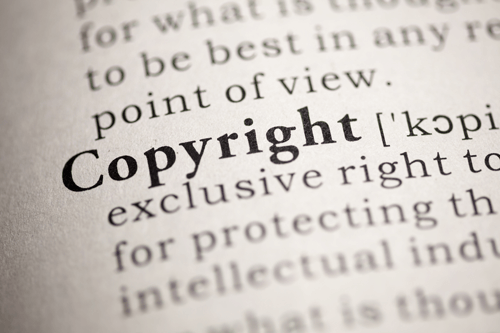Who Owns the Copyright? It’s not always as obvious as you might think
Copyright is a very important and commonly misunderstood form of legal protection for different types of creative works. Whether you are a creator of works eligible for copyright or have a professional relationship with a creator in relation to work potentially covered by copyright, it is important to understand exactly how copyright law works and your legal position.
What types of work are covered by copyright?
Copyright is automatically granted for the following types of works:
- Original literary, dramatic, musical or artistic work (eg. books, business plans, designs)
- Other original work of a non-literary nature (eg. web content, software and databases)
- Recordings of music and other sounds
- Film and TV recordings
- Broadcasts (eg. live streams, Youtube)
- The specific layout of published editions of works of a written, dramatic or musical nature (eg. packaging, website, etc)
What protection does copyright afford?
Works protected by copyright cannot be copied by another party. Any third party is also not allowed to distribute copies of copyright protected work, whether for profit or for free (this includes renting, lending and online distribution).
A third party is also not allowed to perform, show or play copyright protected work or adaptations of such work.
Who does the copyright belong to?
Copyright ownership will depend on who created it and under which circumstances.
Work created for yourself – The author or creator will usually be the copyright holder, as long as they were producing the work for themselves, rather than for an employer.
Work created for an employer – The employer will normally be the first owner of the copyright unless there is a legal agreement in place that states otherwise.
Work created under contract – The creator will normally own the copyright, unless there is an agreement that states that the copyright will belong to the person commissioning the work.
Work created on commission – The creator will normally own the copyright unless there is an agreement granting copyright to the commissioning party.
Work created by joint authors – The copyright will normally be shared equally between the joint creators. However, if the joint authors made distinct contributions, they may each hold the individual copyright for the contributions.
Any of these situations can potentially be modified by a legal agreement granting copyright to another party, so it is important to always take specialist legal advice before signing any agreement related to the creation of works that would normally be covered by copyright. Essentially, any transfer of copyright must be in writing.
When does copyright not apply?
There are various situations where it may be possible to use a copyright protected work without seeking permission from the copyright holder.
Criticism, review and reporting – Sections of copyright protected work can be reproduced for the purposes of criticism, review or reporting, with the exception of photographs. The principle of fair dealing also applies, although a third party is not normally allowed to reproduce the entire work unless this is genuinely necessary for the purpose.
Teaching – There are a number of exceptions that apply when teaching copyright protected work, including copying works and performing or showing works.
Parody – One of the more recent exceptions to copyright is for the purposes of parody, caricature or pastiche. This means limited parts of a copyright protected work can be used for the purposes of comedy.
Academic research and private study – individuals are normally permitted to copy extracts of copyright protected works for non-commercial research and private study. This is subject to the concept of ‘fair dealing’, which means you would not usually be able to copy the complete work.
Non-commercial analysis – Copyright protected works can usually be used for text and data mining for non-commercial purposes e.g. looking for trends, patterns and other insights.
Placing copyright protected work into an accessible format – for disabled people who would otherwise not be able to access the work.
How are copyright disputes resolved?
Where you believe someone has infringed your copyright or you have been accused of infringing copyright, the first step is to provide evidence to support your position. If you are the copyright owner (or an innocent infringing party) then you may wish to produce dated records or documents evidencing your creation and ownership of the copyrighted work. There will normally be an exchange of correspondence between the parties and their solicitors, setting out their respective positions and the outcome they are seeking.
If an agreement cannot be reached at this early stage, negotiation and other alternative dispute resolution methods, such as mediation, may be required. If an agreement still cannot be reached, court proceedings may be necessary.
Where it is agreed between the parties or decided by a court that copyright has been infringed, potential outcomes might be for the alleged infringer to cease using the copyright protected material or for them to agree to pay a licensing fee to the copyright holder. Any profit made from the use of the copyright protected material may also need to be turned over to the rights holder.
Speak to our Commercial team for expert advice on copyright and intellectual property law
To discuss ownership or copyright or any other intellectual property matter with our highly experienced Company Commercial team, please get in touch.
Please note the contents of this article are given for information only and must not be relied upon. Legal advice should always be sought in relation to specific circumstances.

